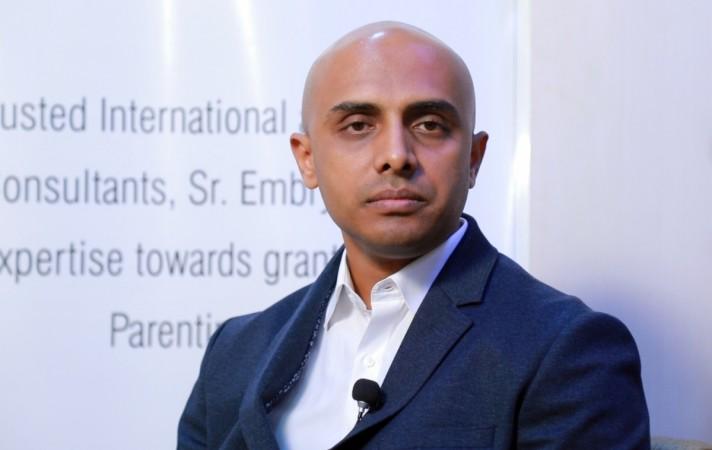July 24 is observed as World IVF Day. While this day commemorates the first childbirth in the world through in vitro fertilization some 40 years ago, it also puts the limelight on myriad issues associated with the practice -- regulatory problems, need for legislation, cost factor and people's awareness.
International Business Times, India talked to an eminent fertility expert about advanced fertility treatments and issues such as regulatory challenges, surrogacy bill and vexing issues emanating from lack of general awareness.
Dr Manjunath CS, the vice-president of the Karnataka chapter of Indian Society for Assisted Reproduction (ISAR), says lack of regulations and guidelines has led to irregularities in the field.
Although the import of embryos is prohibited, except for research purposes, a lack of proper framework means that the doctors are not obliged to make a recording of the case or pass it on to the patient. There is still no framework on extraction and preservation of eggs and other genetic material during the procedure
We asked him about a spooky case from Mumbai wherein a Malaysian national was nabbed at the Mumbai international airport with a nitrogen canister containing frozen human embryos. A probe by the Directorate of Revenue Intelligence (DRI) revealed that the detained Malaysian national was a "regular carrier" of human embryos. He was planning to deliver the canister to the trainer.
The DRI officials said that this was the first instance of the agency investigating a case related to smuggling of human embryos. However, such dubious deals in the IVF arena are not news for those familiar with the industry.
Lack of proper framework
According to Dr Manjunath, Medical Director of Mathrutva Fertility Centre, Bangalore, the lack of regulations and guidelines has led to an increasing number of such cheating cases.
"Although the import of embryos is prohibited, except for research purposes, a lack of proper framework means that the doctors are not obliged to make a recording of the case or pass it on to the patient. There is still no framework on extraction and preservation of eggs and other genetic material during the procedure," Dr Manjunath told International Business Times.

In such cases, the patients do not know the number of eggs extracted and those eventually used. The patients can also be kept unaware of the source of the embryo implanted, he explained.
"Because of this, in certain cases, the doctors have even gone to the extent of handing over IVF babies to couples that were diverted from others," said Dr Manjunath.
He added that many of the couples who give the consent for IVF procedures lack the knowledge to question and probe a doctor - let alone demand a DNA test to establish the parentage. "These people are becoming easy prey in the hands of the venal."
The cost of IVF procedures can run into lakhs of rupees. This means that a lack of framework can lead to the patient also getting financially exploited. The doctors are also not required to reveal the number of successful treatments to the government. In this situation, the couples are forced to believe the words of the doctor on their success rate.
With unclear data on the deliveries, the parents undergoing IVF treatment can also demand a child with "non-Indian looks" through illegal import of embryos.

Need for legislation
The Indian IVF industry is expected to be valued at Rs 5,757 crore by 2023, growing at an annual rate of 10 percent. Yet, no legislation currently regulates the Assisted Reproductive Technology (ART), including in-vitro fertilisation (IVF), intra-uterine insemination (IUI), oocyte and sperm donation and cryopreservation.
While the Indian Council of Medical Research (ICMR) has issued the 'National Guidelines for Accreditation, Supervision and Regulation of ART Clinics in India', it does not have legislative backing.
The Draft Assisted Reproductive Technology (Regulation) Bill, 2017, is also yet to be passed by the government but has already attracted criticism. The bill seems inadequate in dealing with the sensitive issue as only an 'infertile couple' is eligible to avail ART.
The term 'couple' is also narrowly defined, only to mean a heterosexual relationship of a marriage or a live-in relationship. Under the bill, a man above 50 years and a woman above 45 years are not eligible.
The existing ICMR guidelines have been ignored in the drafting of the bill. For instance, single women were permitted to benefit from ART. The guidelines also provide for 'minimum physical requirement for ART clinics', 'essential qualifications of ART teams' and 'ART procedures', which are missing from the current ART bill.
Surrogacy on the other hand, which is also included in ART, is strictly regulated now after the Union Cabinet passed the Surrogacy (Regulation) Bill, 2019.
Surrogacy Bill
"While the Surrogacy (Regulation) Bill, 2019, will not have a direct impact on the IVF industry, a complete ban on commercial surrogacy is going to do more harm than good," said Dr Manjunath, who has performed more than 4,500 IVF cycles in the last 10 years.
He also feels only 2-3 percent of all surrogacy treatments are done through IVF, but a ban may lead to an increase in illegal practices in the industry.
While regulating the industry is of utmost importance, we from the medical fraternity request the government to revise the Surrogacy bill, taking into account all the aspects of its effects
The bill proposes to regulate surrogacy by establishing a National Surrogacy Board and State Surrogacy Boards. These boards are expected to help in fast securitising of cases which need IVF treatment.
"According to me, relatives won't offer to carry a couple's child in 90 percent of the cases. In a situation like that, this bill will adversely affect a lot of women who are biologically incapable of carrying a child in their womb," said Dr Manjunath. He said that it is not right for the government to ban a practice due to certain instances.
Dr Manjunath believes that the ART industry on a whole needs a revamp. "There are not even many professional embryology courses in the country at this moment. Hence, while regulating the industry is of utmost importance, we from the medical fraternity request the government to revise the Surrogacy bill, taking into account all the aspects of its effects," he added.
















